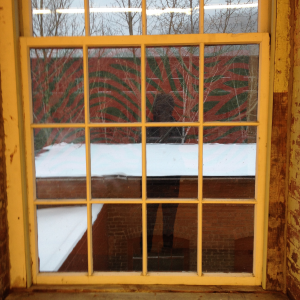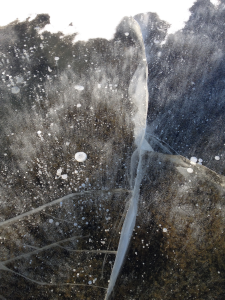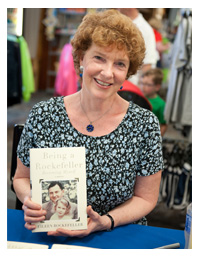I’m outside my comfort zone today, but then isn’t everyone? I fear we are entering the age of anarchy, in which a growing number of extremist people believe they have a right – even a duty – to hack, take hostage, or gun down anyone who contradicts or disputes their ideology. What is going on?
Recent examples:
– Movie, “The Interview” withdrawn from theaters after North Korea’s government hacked
the studio.
– The French Satirical magazine Charlie Hebdo, stormed by gunmen.
– Kosher market, Hyper Cacher, in Paris, attacked, killing 4 Jews.
I believe it all begins at home. If we want to raise peaceful, compassionate and respectful citizens, we need to model these attributes around the dinner table. It’s not enough to expect our schools to imbue students with right values only to return them to cold and empty, or often abusive homes at night. Giving lip service to “children first” does not make the grade when we in the United States of America pay more for prisons than schools. Case in point: In 2014, California spent 7 times the amount per prison inmate than for each K-12 student. What happened to the idea of love, compassion, or just plain old prevention?
Victor Hugo, 19th Century author, said “He who opens a school door closes a prison.”
It doesn’t take heroes to raise children, but it takes heroes to save people from hostage takeovers. And it takes the hero in each of us to face ourselves squarely, when faced with shame or guilt.
Most of us, when questioned about our behavior take a defensive stance. This is normal, according to Anna Freud, daughter of Sigmund, who published her great work in 1936 on The Ego and the Mechanisms of Defense. Her wisdom has stood the test of time.
Take 6 minutes to watch this YouTube below and see which parts you relate to. I found it engaging, humorous and wise:
To summarize, according to Anna Freud, the 10 defense mechanisms against suffering, common to all human beings are:
1. Denial: when we don’t admit that there is a problem.
2. Projection: attributing a bad feeling we have about ourselves onto someone else.
3. Turning against the self: thinking badly about our self as a way of escaping from the even worse thought; that someone we hope loves us, doesn’t.
4. Sublimation: redirecting unacceptable thoughts or emotions into higher and final channels, like art, or a cause. This is the healthiest response to self-defense.
5. Regression: returning to a way of behaving we did as a child, and blaming others or the rest of the world.
6. Rationalization: making excuses for our actions or outcomes.
7. Intellectualization: neutralizing our painful thoughts by absorbing our mind elsewhere, (like the history of the late Roman Empire!)
8. Reaction Formation: doing the opposite of our initial unacceptable feelings, like a young girl pretending she hates the boy in her class, when actually she has a crush on him.
9. Displacement: redirecting an aggressive desire to a substitute recipient.
10. Fantasy: avoiding problems by imagining them away.
Anna Freud says that most of us walk around each day displaying at least 5 of these defense mechanisms without knowing it.
How would our lives and the lives of those around us, be different if we were more conscious of our behaviors? Would the attacks in Paris have happened? What in their childhoods could have sprouted the seeds of radicalization? And how, as a world community, are we all culpable?
Air bubbles & fissures in ice, my image of consciousness rising.
To be our true selves we need to release the trapped energy of our defense mechanisms.
After watching the video…
– Which defense mechanisms do you most frequently express?
– How would your life be different if you recognized them in action?
– What kind of support do you need to take responsibility?




Hello, Eileen,
I’ve been hoping you would write about what you call “the age of anarchy, in which a growing number of extremist people believe they have a right – even a duty – to hack, take hostage, or gun down anyone who contradicts or disputes their ideology.” The questions that you ask are critically important, and I need to think hard about them—even while acknowledging that the questions seem far bigger than my ability to understand and answer them.
But here are a couple of thoughts (in no very logical order):
Some things ARE very, very bad these days. Yet some things have always been very, very bad. My parents lived through World War I and World War II, the Great Depression, the age of segregation, the nuclear arms race, the Cold War, the War in Vietnam, etc. I myself have lived through the last phases of the age of segregation, the nuclear arms race, the Cold War, the War in Vietnam, 9/11, and the endless wars in the Near and Middle East, etc. In other words, humans have always inflicted great suffering on one another. Alas, today there seem to be no completely safe places.
Regarding your list of defenses from Anna Freud, I can see that I’ve used each of them often. (Unfortunately, I couldn’t get the video to play.) It would take a long book or three to describe my use of defenses. But, for example, one thing I’ve observed again and again in therapy is that I constantly limit myself by attributing to other people negative thoughts I have about myself. In a sense, I am my own jailer but don’t want to recognize that. Another defense: Fantasy. Seeing the world—the big world and my own (small) world—according to my preconceptions and needs, not according to reality….
In any case, looking at one’s defenses is inherently hard AND it’s also absolutely essential to growth and change and love. So thank you for bringing in the great Anna Freud.
I do think that your emphasis on personal psychology is correct, but there’s also an element of collective psychology—the influence of whole societies and groups on individual behavior—that one needs to include. For example, I was born into a prosperous, “white,” American family in 1948. But how would my beliefs and behavior have been different if I’d been born into a prosperous, “aryan,” German family in 1918? I like to think that I’d have gone boldly against the tide of racism, hatred, and militarism in German in the early and middle parts of the last century. But would I have? Doing so would have been immensely challenging, considering that a growing number of extremist people in that era believed they had a right – even a duty – to spy on, take hostage, or gun down anyone who contradicted or disputed their ideology. And am I going strongly enough against the bad tides of 2015? Not strongly enough.
A very important post, but I do think one needs to think about the individual psyche AND the collective psyche–not because one wants to excuse bad personal behavior but because, for better and worse, the individual is necessarily part of the collective. “No man is an island.”—Richard
Hi Richard, you DO love to write! Thanks for your point about the collective and the individual psyche. I agree whole-heartedly.
Best, Eileen
Hi Dear Eileen….you start by asking: “What’s going on”—with all of the violence erupting almost everywhere. I am calling our experience of watching, reading, and hearing these horrible events as GLOBAL INFLAMMATION!! It seems to be the only term I can come up with that captures its essence. Having said this, I agree with the video and your postings of what Anna Freud aptly identified, HOWEVER, these radical movements and actions internationally are extremely complex. I have been in France and witnessed young men whose origins are from Morocco, Algeria, etc….what I saw was housing that looks like our “projects” and a group of young people not well integrated into that society; so I have come to the conclusion, that these radical movements prey on young men who lack meaning and relatedness in their world. I see cultural differences as equally as compelling when it comes to what is going on internationally. If Anna Freud were alive today and served on a panel of experts, I wonder what ideas she could offer that could point to solutions. I apologize for not answering your questions about me personally. These external events have captured my concern and attention rather profoundly these days! Hugs to you. Louise
You raise a most important point Louise, about the lack of meaning. I believe that it is exactly this that leads people into violence. Thanks for your term global inflammation.
hugs, Eileen
Hi Eileen, The turbulent events you cited are frightening. “What’s going on?” you ask. People have to employ defense mechanisms– common sense, quiet time, reflection, rest, kindness, understanding, sharing thoughts. Leaders will rise to the top and defeat the ills of society.
You’re right Elaine, that defense mechanisms are a natural way to cope. Cultivating the leaders with kindness from the time they are children is a long-term form of change. In the short term, we are faced with many challenges to which I don’t know the answer, but building community, even like this blog, is one way to feel less helpless and more connected. Thanks, as always, for tuning in. Warmly, Eileen
I hope you’re right Elaine. We need good leadership now, more than ever. Best, Eileen
Eileen,
Thank you so much for this most timely post. I say this on the heels of spending my Sunday with Oprah Winfrey and members of the cast of the Academy Award nominated movie “Selma.” We all gathered in Selma, Alabama this past Sunday, for a commemorative walk across the bridge where 50 years ago hundreds (Black & White) were beaten and killed while seeking the right to vote for all Americans.
Voting rights, democracy, freedom of speech, civil rights, human rights, women rights, the right to education, – historically have not come easy for everyone in this country. Unfortunately the history of not only America, but the world is filled with these horrific crimes against humanity. I think it is primarily because we look through the lens of “labels” that obscure our vision – preventing us from seeing each others’ humanity that is the real crime.
Your question reminds of the late Marvin Gaye’s song, “What’s Going On?” Where he writes, “Father, father, we don’t need to escalate. You see war is not the answer. For only love can conquer hate. You know we got to find a way to bring some lovin’ here today. Pickett lines and Pickett signs, don’t punish me with brutality. Come on talk to me so you can see… what’s going.”
Tolerance. Respect. Discipline. Cooperation, Dialogue & LOVE. It begins within. I’ve learned that you can’t give what you don’t have – so I’ve been on a journey of self improvement, self development, self correction, self love and respect – that I pray I never return from. When we ARE THE CHANGE we hope to see – then we will see it in the world!!!
With Great Love All Things Are Possible,
Tonja
Dear Tonja (Iman?) You are a courageous leader and I feel proud to know you. Looking forward to seeing where all this leads. And I totally agree that we can’t give what we don’t have. Self-healing heals the world no matter what we do in it, but self-healing combined with attempts to help people and situations around us is powerful. More power to you. love, Eileen
Eileen,
Enjoyed watching the video. The midwives at UVM Medical Center teach psychotherapy as part of their perinatal healthcare. I’ll be forwarding them the Freud video.
Crea
Thanks Crea. So great that you are working with the midwives still. You have been a pioneer!